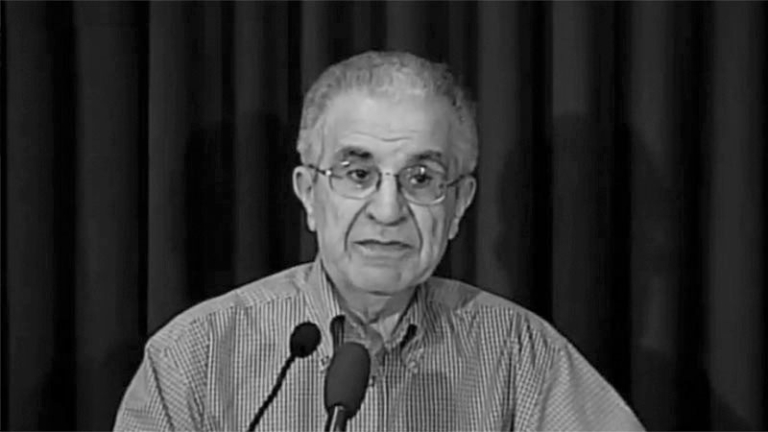
Arab Center Washington DC’s Board of Directors, Academic Advisory Board, and staff are deeply saddened to learn of the passing of Dr. Halim I. Barakat on June 23, 2023. Dr. Barakat was a preeminent Arab American sociologist, intellectual, and teacher whose work explained the complexities of Arab identity, cultural crises, and hopes for renewal. He was also a novelist whose stories relayed the social and political realities of his life growing up in the Arab world, and as an immigrant to the United States.
One of Dr. Barakat’s seminal works, Lebanon in Strife: Student Preludes to the Civil War (University of Texas, 1977), focused on the impact of ideological trends among Lebanese students on politics in the years prior to Lebanon’s long civil war from 1975 to 1990, studying how alienation from the confessional political system among Lebanon’s youth helped radicalize them and make them agents of social and, ultimately, political change. Another work, The Arab World: Society, Culture, and State (University of California Press, 1993), provided an Arab perspective on the political and cultural dynamics that constitute the background for the modern-day Arab Middle East, and rejected notions that the region is a monolith shaped solely by Islam or inescapably riven by sectarianism. Barakat saw Arab society as complex, evolving and changing in ways that he hoped would inevitably lead to improved human conditions despite widespread adversity, alienation, and disillusionment about the Arab political order. In other books and essays written over his extended academic career, he covered topics as diverse as Palestinian homelessness, the conditions of civil society in the Arab world, alienation, and the Arab search for identity, freedom, and justice.
Dr. Barakat’s novels and short stories wedded his scholarly training to a vivid imagination shaped by years of observation and experience. His novel Six Days (1961, in Arabic), which depicts a city under siege as an allegorical reference to Palestine, was seen as prophetic, coming as it did just six years prior to the 1967 Arab–Israeli War. He followed this work with Awdat al-Ta’ir ila al-Bahr (1969, in Arabic; translated as Days of Dust,) which recounts the events of the 1967 War. His love for and connection to Beirut also produced a number of novels and short stories, including al-Madina al-Mulawwana (City of Color, 2006) in which he recollects his days in the city before emigrating and laments how the civil war destroyed its spirit.
Halim Barakat came from a Syrian family that emigrated to Lebanon in the 1940s. He and his two siblings lost their father when Halim was ten, and they were subsequently raised by his mother in Beirut. He went to school in Beirut and graduated with a bachelor’s degree in sociology from the American University of Beirut (AUB) in 1955, and with a master’s in 1960. He received his doctorate in sociology from the University of Michigan, Ann Arbor in 1966. Barakat returned to Beirut to teach at AUB from 1966 to 1972, and then joined Harvard University as a research fellow from 1972 to 1973 and taught at the University of Texas at Austin from 1975 to 1976. He joined Georgetown University’s Center for Contemporary Arab Studies in 1976, where he taught until 2002.
A memorial service will be held for Dr. Barakat on Friday, July 7, 2023 at 11 a.m. at St. Peter and Paul Antiochian Orthodox Church, 10620 River Road, Potomac, MD, 20854.
